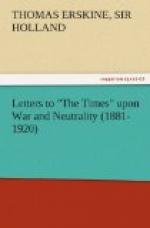The principal purpose of the order was to except from competitive examination certain places involving fiduciary responsibilities or duties of a strictly confidential, scientific, or executive character which it was thought might better be filled either by noncompetitive examination, or in the discretion of the appointing officer, than by open competition. These places were comparatively few in number. The order provides for the filling of a much larger number of places, mainly in the outside service of the War Department, by what is known as the registration system, under regulations to be approved by the President, similar to those which have produced such admirable results in the navy-yard service.
All of the amendments had for their main object a more efficient and satisfactory administration of the system of appointments established by the civil-service law. The results attained show that under their operation the public service has improved and that the civil-service system is relieved of many objectionable features which heretofore subjected it to just criticism and the administrative officers to the charge of unbusinesslike methods in the conduct of public affairs. It is believed that the merit system has been greatly strengthened and its permanence assured. It will be my constant aim in the administration of government in our new possessions to make fitness, character, and merit essential to appointment to office, and to give to the capable and deserving inhabitants preference in appointments.
The 14th of December will be the One Hundredth Anniversary of the death of Washington. For a hundred years the Republic has had the priceless advantage of the lofty standard of character and conduct which he bequeathed to the American people. It is an inheritance which time, instead of wasting, continually increases and enriches. We may justly hope that in the years to come the benignant influence of the Father of his Country may be even more potent for good than in the century which is drawing to a close. I have been glad to learn that in many parts of the country the people will fittingly observe this historic anniversary.
Presented to this Congress are great opportunities. With them come great responsibilities. The power confided to us increases the weight of our obligations to the people, and we must be profoundly sensible of them as we contemplate the new and grave problems which confront us. Aiming only at the public good, we cannot err. A right interpretation of the people’s will and of duty cannot fail to insure wise measures for the welfare of the islands which have come under the authority of the United States, and inure to the common interest and lasting honor of our country. Never has this Nation had more abundant cause than during the past year for thankfulness to God for manifold blessings and mercies, for which we make reverent acknowledgment.
WILLIAM McKINLEY.




